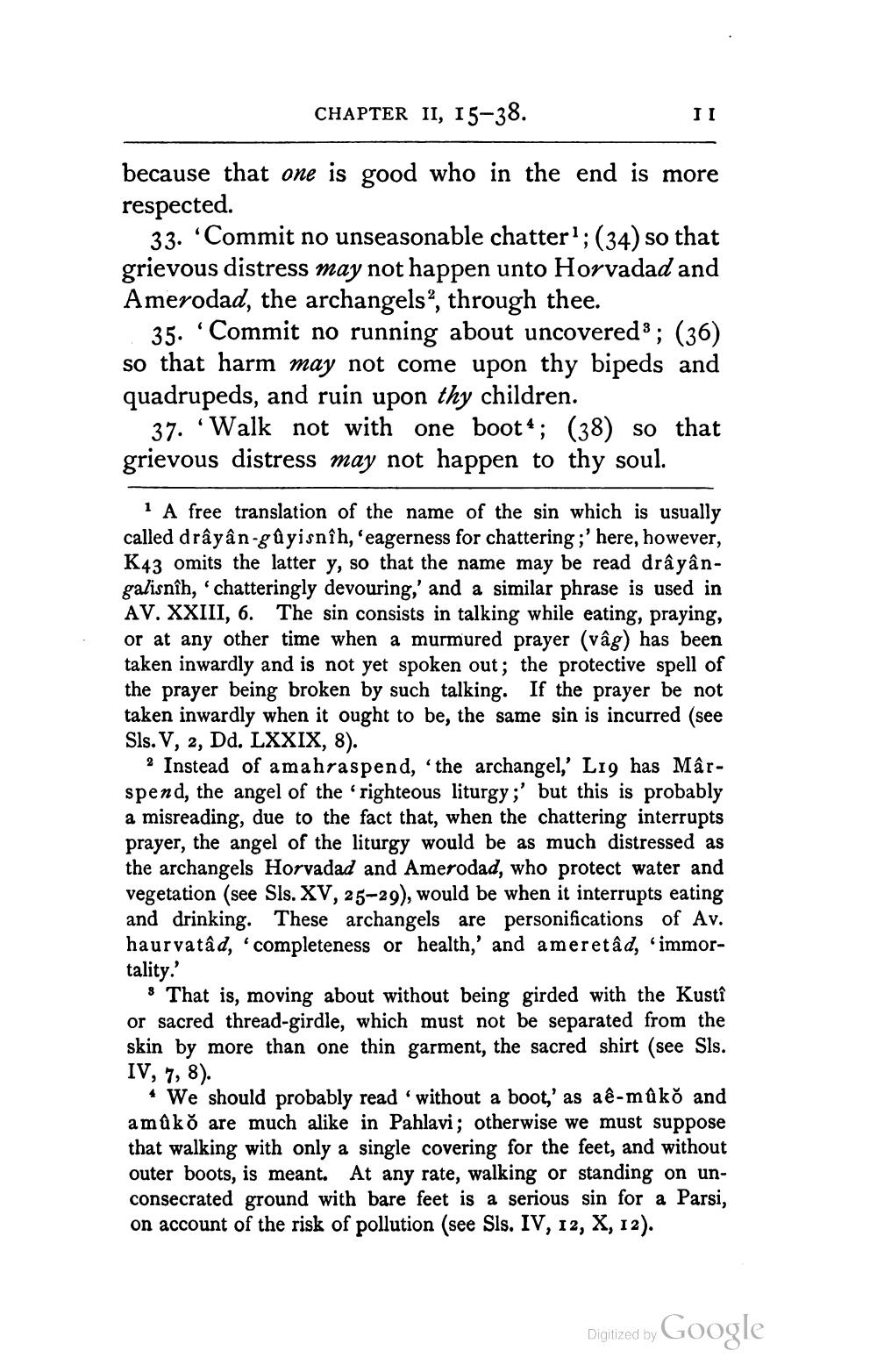________________
CHAPTER II, 15-38.
II
because that one is good who in the end is more respected.
33. 'Commit no unseasonable chatter?; (34) so that grievous distress may not happen unto Horvadad and Amerodad, the archangels, through thee.
35. Commit no running about uncovered 3 ; (36) so that harm may not come upon thy bipeds and quadrupeds, and ruin upon thy children.
37. Walk not with one boot4; (38) so that grievous distress may not happen to thy soul.
1 A free translation of the name of the sin which is usually called drâyân-gûyisnih, eagerness for chattering;' here, however, K43 omits the latter y, so that the name may be read drâyângalisnîh, chatteringly devouring,' and a similar phrase is used in AV. XXIII, 6. The sin consists in talking while eating, praying, or at any other time when a murmured prayer (vâg) has been taken inwardly and is not yet spoken out; the protective spell of the prayer being broken by such talking. If the prayer be not taken inwardly when it ought to be, the same sin is incurred (see Sls. V, 2, Dd. LXXIX, 8).
? Instead of amahraspend, the archangel,' L19 has Mârspend, the angel of the righteous liturgy;' but this is probably a misreading, due to the fact that, when the chattering interrupts prayer, the angel of the liturgy would be as much distressed as the archangels Horvadad and Amerodad, who protect water and vegetation (see Sls. XV, 25-29), would be when it interrupts eating and drinking. These archangels are personifications of Av. haurvatâd, 'completeness or health,' and ameretâd, immortality'
$ That is, moving about without being girded with the Kustî or sacred thread-girdle, which must not be separated from the skin by more than one thin garment, the sacred shirt (see Sls. IV, 7, 8).
• We should probably read without a boot,' as aê-mûko and a mûko are much alike in Pahlavi; otherwise we must suppose that walking with only a single covering for the feet, and without outer boots, is meant. At any rate, walking or standing on unconsecrated ground with bare feet is a serious sin for a Parsi, on account of the risk of pollution (see Sls. IV, 12, X, 12).
Digitized by Google




